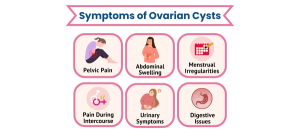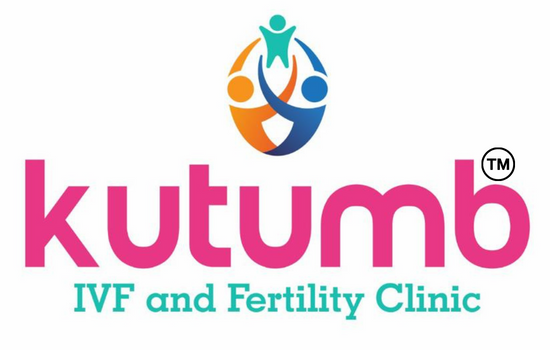What Are Ovarian Cysts?
Ovarian cysts are fluid-filled sacs that form on or within an ovary. They are relatively common and often occur during the menstrual cycle. Most ovarian cysts are benign and asymptomatic, meaning they don’t cause noticeable symptoms or pose significant health risks. However, in some cases, they can lead to complications that might affect fertility.
Types of Ovarian Cysts
There are several types of ovarian cysts, each with different characteristics and potential impacts on fertility:
a. Functional Cysts
These are the most common type of ovarian cysts and typically develop as part of the menstrual cycle. Functional cysts include:
• Follicular Cysts: Form when the follicle, which normally releases an egg, does not break open and release the egg. Instead, it continues to grow and fill with fluid.
• Corpus Luteum Cysts: Develop after the follicle releases the egg. The follicle should collapse and form the corpus luteum, which produces hormones necessary for pregnancy. If the corpus luteum fills with fluid or blood instead, it becomes a cyst.
b. Dermoid Cysts
These are benign tumors that can contain various types of tissue, such as hair, skin, and teeth. Dermoid cysts can grow quite large and may need surgical removal if they cause pain or other symptoms.
c. Endometriomas
Also known as “chocolate cysts,” these cysts form as a result of endometriosis, a condition where the tissue similar to the uterine lining grows outside the uterus. Endometriomas can affect fertility by causing inflammation and scarring.
d. Cystadenomas
These cysts develop from the cells on the outer surface of the ovary and can grow quite large. They are usually benign but can cause discomfort and pressure on surrounding organs.
e. Polycystic Ovary Syndrome (PCOS) Cysts
Women with PCOS often have multiple small cysts on their ovaries. These cysts are not usually painful but can lead to hormonal imbalances that affect ovulation and, consequently, fertility.
f. Hemorrhagic Cysts
These occur when a blood vessel within a cyst bursts, causing bleeding into the cyst. This can lead to discomfort and pain but typically resolves on its own.
 Symptoms of Ovarian Cysts
Symptoms of Ovarian Cysts
Ovarian cysts are fluid-filled sacs that develop on the ovaries. They are relatively common and often form as part of the normal menstrual cycle. While many women with ovarian cysts experience no symptoms, others may notice certain signs that could indicate a problem. Common symptoms of ovarian cysts include:
• Pelvic Pain: This can vary from a dull ache to sharp pain and might be constant or occur intermittently.
• Abdominal Swelling: Some women notice bloating or a sense of fullness in the abdomen.
• Menstrual Irregularities: Changes in your menstrual cycle, such as irregular periods or heavier-than-usual bleeding, can occur.
• Pain During Intercourse: Pain during or after sexual activity is another potential symptom.
• Urinary Symptoms: Increased frequency or urgency to urinate, or difficulty emptying the bladder fully.
• Digestive Issues: Nausea, vomiting, or discomfort in the digestive tract may also be present.
It’s important to note that these symptoms can overlap with other conditions. If you experience any of these signs, particularly if they are persistent or severe, it’s advisable to consult a healthcare provider for a thorough evaluation.
Ovarian Cysts and Fertility
The impact of ovarian cysts on fertility can vary depending on the type and size of the cysts, as well as other individual factors. Here’s how ovarian cysts can affect fertility:
• Functional Cysts: These are the most common type and include follicular cysts and corpus luteum cysts. They usually form as part of the normal menstrual cycle and often resolve on their own. Typically, functional cysts do not significantly impact fertility.
• Polycystic Ovary Syndrome (PCOS): PCOS is a common condition where multiple small cysts form on the ovaries. It is associated with hormonal imbalances that can interfere with ovulation, making it more difficult to conceive. Managing PCOS through lifestyle changes, medication, and other treatments can improve fertility outcomes.
• Endometriomas: These cysts are associated with endometriosis and can form when endometrial tissue grows on the ovaries. Endometriomas can potentially reduce ovarian reserve and affect ovulation, which may impact fertility. Treatment options are available to help manage endometriosis and improve fertility chances.
• Dermoid Cysts and Cystadenomas: These are less common types of ovarian cysts that can be benign but may require surgical removal if they are large or cause symptoms. Surgery can sometimes impact ovarian function, but many women still retain good fertility after removal.
• Ruptured Cysts: When an ovarian cyst ruptures, it can cause acute pain and internal bleeding. While this is usually a temporary issue, severe complications could potentially affect fertility.
Diagnosis and Treatment of Ovarian Cysts
Diagnosis: Ovarian cysts are typically identified through a pelvic exam, ultrasound, and sometimes blood tests. In some cases, a laparoscopy may be needed for a detailed view.
Treatment:
• Watchful Waiting: Small, asymptomatic cysts often require no treatment.
• Medications: Hormonal contraceptives can help manage or prevent cysts.
• Surgery: Larger or symptomatic cysts may require surgical removal, with options for fertility preservation if needed.
Preventing and Managing Ovarian Cysts
Prevention Tips:
• Regular Check-Ups: Keep up with gynecological exams to catch cysts early.
• Healthy Lifestyle: Eat well, exercise, and manage stress to support reproductive health.
• Hormonal Regulation: Address hormonal imbalances with your doctor’s guidance.
Management:
• Symptom Relief: Use pain relievers and heat for discomfort.
• Diet and Nutrition: Focus on a balanced diet with antioxidants and omega-3 fatty acids.
• Stress Management: Incorporate stress-reducing practices like yoga or meditation.
Managing ovarian cysts effectively can help maintain reproductive health and improve fertility outcomes.
Conclusion
Ovarian cysts can significantly impact fertility, depending on their type, size, and associated conditions. Regular monitoring and early intervention are essential for managing ovarian cysts effectively, particularly for women who are planning to conceive. For those facing challenges, seeking specialized care is important. If you are in need of female infertility treatment in Vizag or looking for an IVF center in Visakhapatnam, consulting with a fertility specialist can help you explore your options and guide you on the best path forward.
